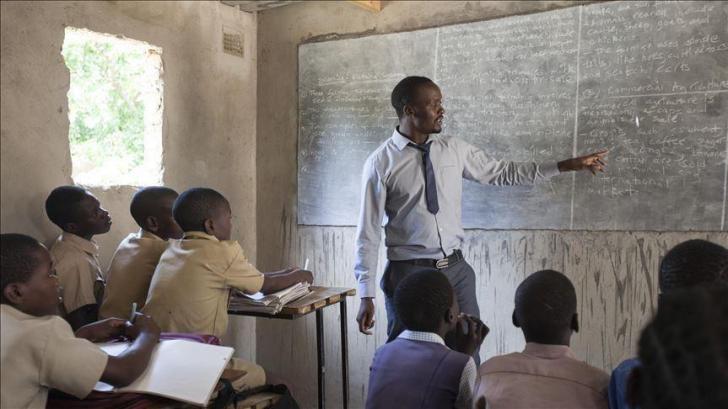News / National
5,000 Zimbabwe teachers quit in 2023
05 Jun 2025 at 09:14hrs |
0 Views

The Ministry of Primary and Secondary Education has revealed that over 5,000 teachers left the profession in 2023, confirming concerns about a growing brain drain in Zimbabwe's education sector. However, teacher unions argue that the official figures significantly understate the true scale of the crisis.
According to ministry spokesperson Taungana Ndoro, the verified number of teachers who exited the profession last year stands at 5,217, representing 3.8% of the workforce. Of these, 2,109 resigned, 2,866 retired, and 242 left due to other reasons.
"The education sector has been hard hit by brain drain," Ndoro said. "Teacher welfare remains a priority, as shown by regular salary adjustments-including a 10% increase plus a US$300 monthly supplement-ongoing classroom infrastructure improvements with 2,800 new classrooms built in 2024, and expanded teacher housing schemes."
Ndoro also noted that the ministry recruited approximately 8,500 teachers in 2023 to address staffing gaps.
The ministry attributed teacher attrition to various causes, with family relocation accounting for 42%, health and personal reasons 31%, career changes 18%, and remuneration concerns 9%.
However, the Progressive Teachers Union of Zimbabwe (PTUZ) disputes the official figures. Last month, PTUZ claimed that as many as 15,000 teachers quit last year, citing frustration over poor working conditions and stagnant wages.
Teachers are currently embroiled in a wage dispute with government, demanding a restoration of their salaries to at least US$540-the level they earned before October 2018. Currently, educators earn an average of around US$250 per month, alongside roughly ZiG3,000 in local currency payments.
PTUZ recently escalated their campaign by sending a delegation to President Emmerson Mnangagwa's office to seek urgent intervention over salary and sector challenges. This follows a prior petition to Finance Minister Mthuli Ncube.
Ndoro urged all stakeholders to engage in constructive dialogue, emphasizing the ministry's commitment to addressing teachers' concerns through platforms such as the National Joint Negotiating Council.
"Quality education requires collective effort," Ndoro said. "We salute our diligent teachers and continue steadily improving systems through evidence-based reforms. We encourage teachers to document and forward individual cases for follow-up to ensure their concerns are properly addressed."
As tensions persist, the government faces mounting pressure to resolve the wage dispute and stem the ongoing exodus of educators critical to Zimbabwe's future.
According to ministry spokesperson Taungana Ndoro, the verified number of teachers who exited the profession last year stands at 5,217, representing 3.8% of the workforce. Of these, 2,109 resigned, 2,866 retired, and 242 left due to other reasons.
"The education sector has been hard hit by brain drain," Ndoro said. "Teacher welfare remains a priority, as shown by regular salary adjustments-including a 10% increase plus a US$300 monthly supplement-ongoing classroom infrastructure improvements with 2,800 new classrooms built in 2024, and expanded teacher housing schemes."
Ndoro also noted that the ministry recruited approximately 8,500 teachers in 2023 to address staffing gaps.
The ministry attributed teacher attrition to various causes, with family relocation accounting for 42%, health and personal reasons 31%, career changes 18%, and remuneration concerns 9%.
Teachers are currently embroiled in a wage dispute with government, demanding a restoration of their salaries to at least US$540-the level they earned before October 2018. Currently, educators earn an average of around US$250 per month, alongside roughly ZiG3,000 in local currency payments.
PTUZ recently escalated their campaign by sending a delegation to President Emmerson Mnangagwa's office to seek urgent intervention over salary and sector challenges. This follows a prior petition to Finance Minister Mthuli Ncube.
Ndoro urged all stakeholders to engage in constructive dialogue, emphasizing the ministry's commitment to addressing teachers' concerns through platforms such as the National Joint Negotiating Council.
"Quality education requires collective effort," Ndoro said. "We salute our diligent teachers and continue steadily improving systems through evidence-based reforms. We encourage teachers to document and forward individual cases for follow-up to ensure their concerns are properly addressed."
As tensions persist, the government faces mounting pressure to resolve the wage dispute and stem the ongoing exodus of educators critical to Zimbabwe's future.
Source - NewsDay
Join the discussion
Loading comments…






























